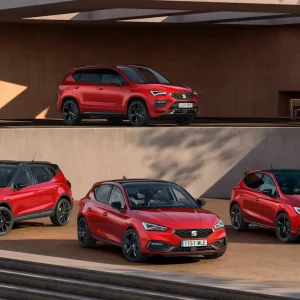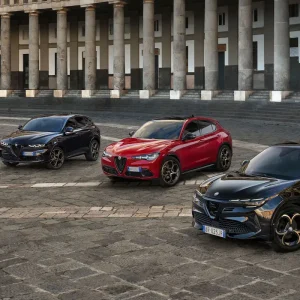Renault will offer car buyers the choice of leasing or purchasing on its electric vehicles, according to UK managing director Ken Ramirez.
The announcement marks a change in a policy that has previously only allowed EV buyers to lease the battery packs. That strategy put the car maker at odds with some areas of fleet, particularly residual value experts Cap, which refused to predict a value on an EV that had split ownership. Additionally, some areas of the insurance market also questioned the split ownership in terms of cover and write-off payments.
The move, which is thought will happen in the next few months, will bring Renault into line with sister firm Nissan, which offers a choice of outright purchase or battery leasing for its EVs.
Speaking exclusively to BusinessCar at the launch of the new Twingo, Ramirez also confirmed that Renault in the UK would not re-enter the upper medium saloon market, but instead take a new large 4×4 that is currently in development: “We won’t take the Laguna in the UK. The market isn’t there. Instead, we will take a D-segment [upper medium] SUV.”
Ramirez’s boss, and European chief executive, Steffen Mueller, said that one of the key points Renault considers when producing a new car is its residual values, but added that the firm does not give sales predictions in order to keep pressure off registrations.
“We don’t have much business in the ‘dirty’ sales: Motability, daily rental and pre-registrations,” said Mueller.
“We need to have volume, but we want to have good residual values. We don’t focus on one car and say we must have this volume. We are going to grow in the UK, but we’re going to do it with cars we can’t talk about today.”
Ramirez, keen not to contradict Mueller, added: “The UK is a unique business. There is a feeling [internationally] that everything that’s not retail is dirty business. But Motability is not dirty business. The only thing is that it’s not controlled by you. And for us pre-registrations doesn’t happen.
“Short-term rental can be a good business. It’s a question of how much you enter into it. It’s only damaging if the percentage is over that of your retail market share. You can’t go over the retail penetration, when it is higher then it harms your business.”
Commenting on the outlook for fleet registrations, Ramirez added: “In the past we were over-dependent on fleet. Retail is growing very strongly, so it looks like there is less of an impact with the growth of fleet. It’s running at about 60:40 retail to fleet now.”





